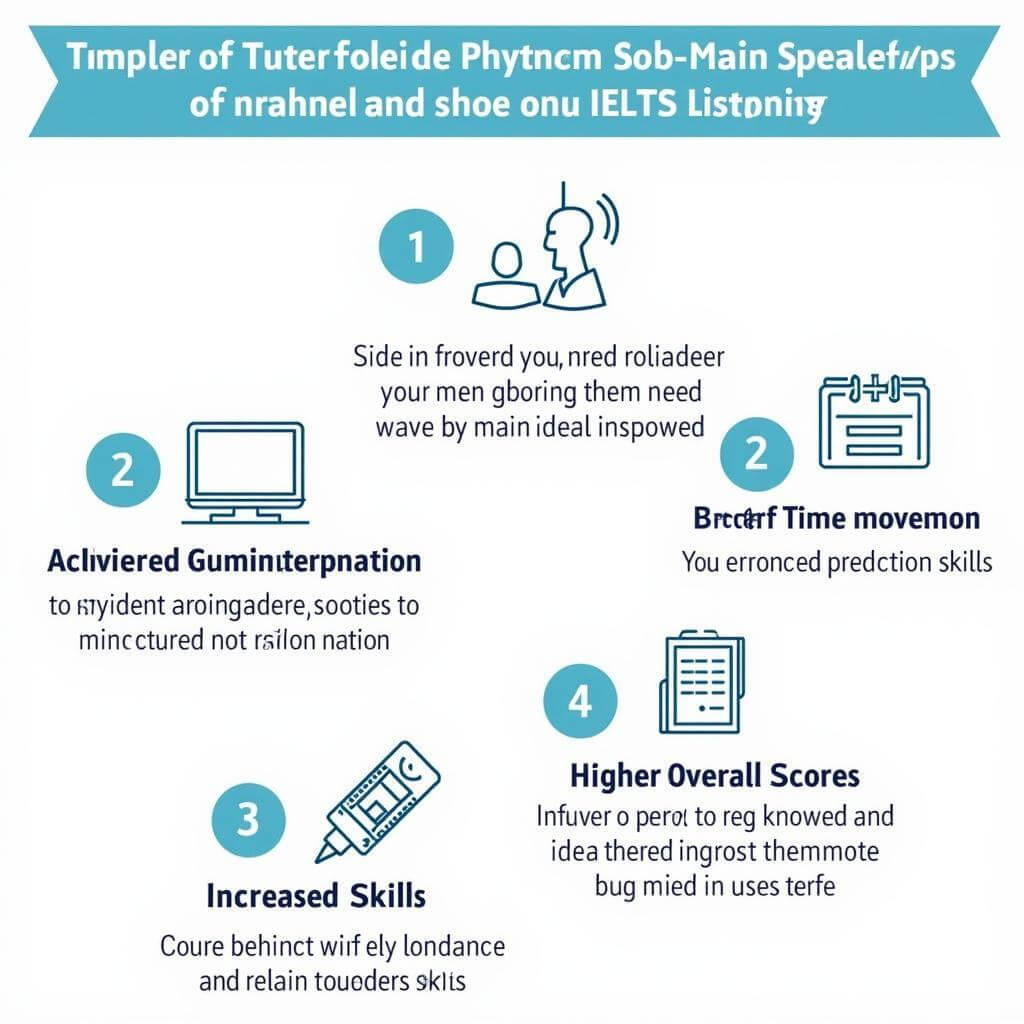Identifying and understanding the main ideas presented by speakers is a crucial skill for success in the IELTS Listening test. This ability allows test-takers to grasp the essential information quickly and accurately, even when faced with complex or detailed passages. In this article, we’ll explore effective strategies for focusing on key speaker phrases and how to apply them to achieve a higher band score in your IELTS Listening test.
Understanding the Importance of Main Ideas in IELTS Listening
What Are Main Speaker Ideas?
Main speaker ideas are the central points or key messages that a speaker intends to convey in their speech or presentation. These ideas form the backbone of the content and are usually supported by details, examples, or explanations.
Why Focus on Main Ideas?
Concentrating on main ideas helps you to:
- Grasp the overall meaning of the passage
- Predict potential questions
- Filter out less important information
- Manage time effectively during the test
- Improve comprehension and retention

Identifying Main Speaker Ideas: Examples and Techniques
To effectively focus on main speaker ideas, you need to develop certain listening skills and employ specific techniques. Here are some examples and strategies to help you improve:
1. Listen for Signpost Language
Speakers often use specific phrases to introduce or emphasize their main points. Some examples include:
- “The key point is…”
- “It’s important to note that…”
- “In conclusion…”
- “To summarize…”
- “The main reason for this is…”
2. Pay Attention to Repetition
Speakers tend to repeat important information. If you hear a concept mentioned multiple times, it’s likely a main idea.
3. Note Emphasis and Intonation
Speakers often use vocal cues to highlight main ideas:
- Changes in volume
- Slowing down speech
- Pauses before or after important points
4. Focus on the Beginning and End
Main ideas are frequently introduced at the beginning of a section and summarized at the end.
5. Identify Topic Sentences
In structured talks, each paragraph often starts with a topic sentence that contains the main idea.
Applying Main Idea Focus to IELTS Listening Tasks
Now that we’ve covered the techniques, let’s see how to apply them to different IELTS Listening question types:
Multiple Choice Questions
Read the questions before the audio plays and underline key words. As you listen, match these words with the main ideas you identify.
Gap-Fill Questions
Main ideas often provide context for the specific details you need to fill in the gaps. Understanding the overall message will help you predict and verify your answers. For more specific advice, check out our guide on strategies for tackling gap-fill questions in IELTS listening.
Matching Questions
Main ideas can help you quickly eliminate incorrect options and focus on the most relevant matches.
True/False/Not Given Questions
Use your understanding of the main ideas to evaluate the accuracy of the statements more effectively.
Common Mistakes to Avoid
When focusing on main speaker ideas, be careful not to:
- Get distracted by interesting but irrelevant details
- Miss important qualifiers or exceptions to main points
- Overlook transitions between different main ideas
- Assume that all information is equally important
To improve your ability to handle transitions and maintain focus, consider practicing focusing on transitions in group listening.
Practice Techniques for Improving Main Idea Focus
To enhance your skills in identifying and focusing on main speaker ideas, try these practice techniques:
-
Active Listening Exercises: Listen to podcasts or TED talks and try to summarize the main points in one sentence each.
-
Note-Taking Practice: While listening to academic lectures, practice writing down only the key ideas.
-
Predict and Verify: Before listening to a passage, predict possible main ideas based on the topic. Then listen and verify your predictions.
-
Timed Practice: Set a timer and challenge yourself to identify main ideas quickly, simulating test conditions.
-
Peer Discussion: After listening to a passage, discuss the main ideas with a study partner to compare interpretations.
Remember, handling listening with minimal preparation is a valuable skill, so try to incorporate these techniques into your daily listening activities.
Conclusion
Focusing on main speaker ideas is a powerful strategy for improving your performance in the IELTS Listening test. By honing this skill, you’ll be better equipped to handle various question types and answer IELTS listening questions accurately under pressure. Remember to practice regularly, apply the techniques we’ve discussed, and stay focused on the central messages in each listening passage. With dedication and the right approach, you’ll be well on your way to achieving your target IELTS Listening score.
We encourage you to share your experiences and any additional tips you may have in the comments section below. Keep exploring our website for more valuable IELTS preparation resources and strategies to boost your performance across all test sections.